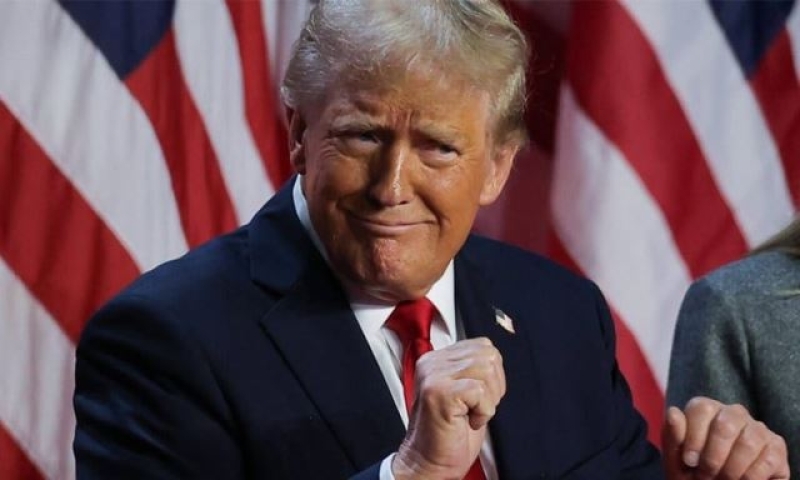- India Sees 9% Drop in Foreign Tourists as Bangladesh Visits Plunge |
- Dhaka Urges Restraint in Pakistan-Afghan War |
- Guterres Urges Action on Safe Migration Pact |
- OpenAI Raises $110B in Amazon-Led Funding |
- Puppet show enchants Children as Boi Mela comes alive on day 2 |
How Trump is using the 'Madman Theory' to try to change the world

US President Donald Trump.
Asked last month whether he was planning to join Israel in attacking Iran, US President Donald Trump said "I may do it. I may not do it. Nobody knows what I'm going to do".
He let the world believe he had agreed a two-week pause to allow Iran to resume negotiations. And then he bombed anyway.
A pattern is emerging: The most predictable thing about Trump is his unpredictability. He changes his mind. He contradicts himself. He is inconsistent.
"[Trump] has put together a highly centralised policy-making operation, arguably the most centralised, at least in the area of foreign policy, since Richard Nixon," says Peter Trubowitz, professor of international relations at the London School of Economics.
"And that makes policy decisions more dependent on Trump's character, his preferences, his temperament.
Trump has learned to put his unpredictability to political use, making it a key strategic and political asset
Trump has put this to political use; he has made his own unpredictability a key strategic and political asset. He has elevated unpredictability to the status of a doctrine. And now the personality trait he brought to the White House is driving foreign and security policy.
It is changing the shape of the world.
Political scientists call this the Madman Theory, in which a world leader seeks to persuade his adversary that he is temperamentally capable of anything, to extract concessions. Used successfully it can be a form of coercion and Trump believes it is paying dividends, getting the US's allies where he wants them.
But is it an approach that can work against enemies? And could its flaw be that rather than being a sleight of hand designed to fool adversaries, it is in fact based on well established and clearly documented character traits, with the effect that his behaviour becomes easier to predict? - BBC News

